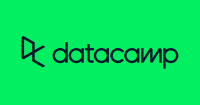Description
In this course, you will :
- Develop your knowledge of SQL and database concepts.
- Understand the differences between SQL and NoSQL, as well as MongoDB, MySQL, and PostgreSQL.
- SQL, PostgreSQL, MySQL, Redis, and Database Management/Design should all be on your resume.
- Learn how to run efficient and performant SQL queries by following best practises.
- Learn how Big Data and databases are used by Machine Learning, Data Science, and Data Engineers.
- Apply for positions as a SQL developer, database administrator, business analyst, backend developer, or business intelligence analyst.
- To work with data efficiently and solve database problems, use the appropriate SQL features.
- Best database practises for designing and managing your company's data.
- Learn how to use user data to make business and market decisions.
- Learn how to scale databases using techniques such as sharding and replication...
- Create your own databases and interact with them using SQL.
- Using SQL, generate insights and reports from real-world data.
- There are numerous exercises to help you practise what you've learned and put your knowledge to the test.
- Based on data analysis, assist sales/marketing/product managers in making better decisions.
- Indexes, aggregates, and caching are advanced SQL topics that will help you make your database queries more efficient.
- Learn about the use of databases in Web and Mobile Applications, Machine Learning, and other fields.
- Learn how to manage user passwords and protect data.
- SQL should be used across multiple tables and databases.
- Learn to use Redis for fast memory storage
- Master SQL joins
Syllabus :
- History And Story Of Data
- Databases + SQL Fundamentals
- Environment Setup
- SQL Deep Dive
- Advanced SQL
- Database Management
- Solving The Mystery
- Database Design
- Database Landscape, Performance and Security
![Complete SQL and Databases Bootcamp: Zero to Mastery [2022]](https://res.cloudinary.com/db194k5td/image/upload/v1665150892/profilepictures/ahj0jwdlz9sjtfqebw2g.jpg)








